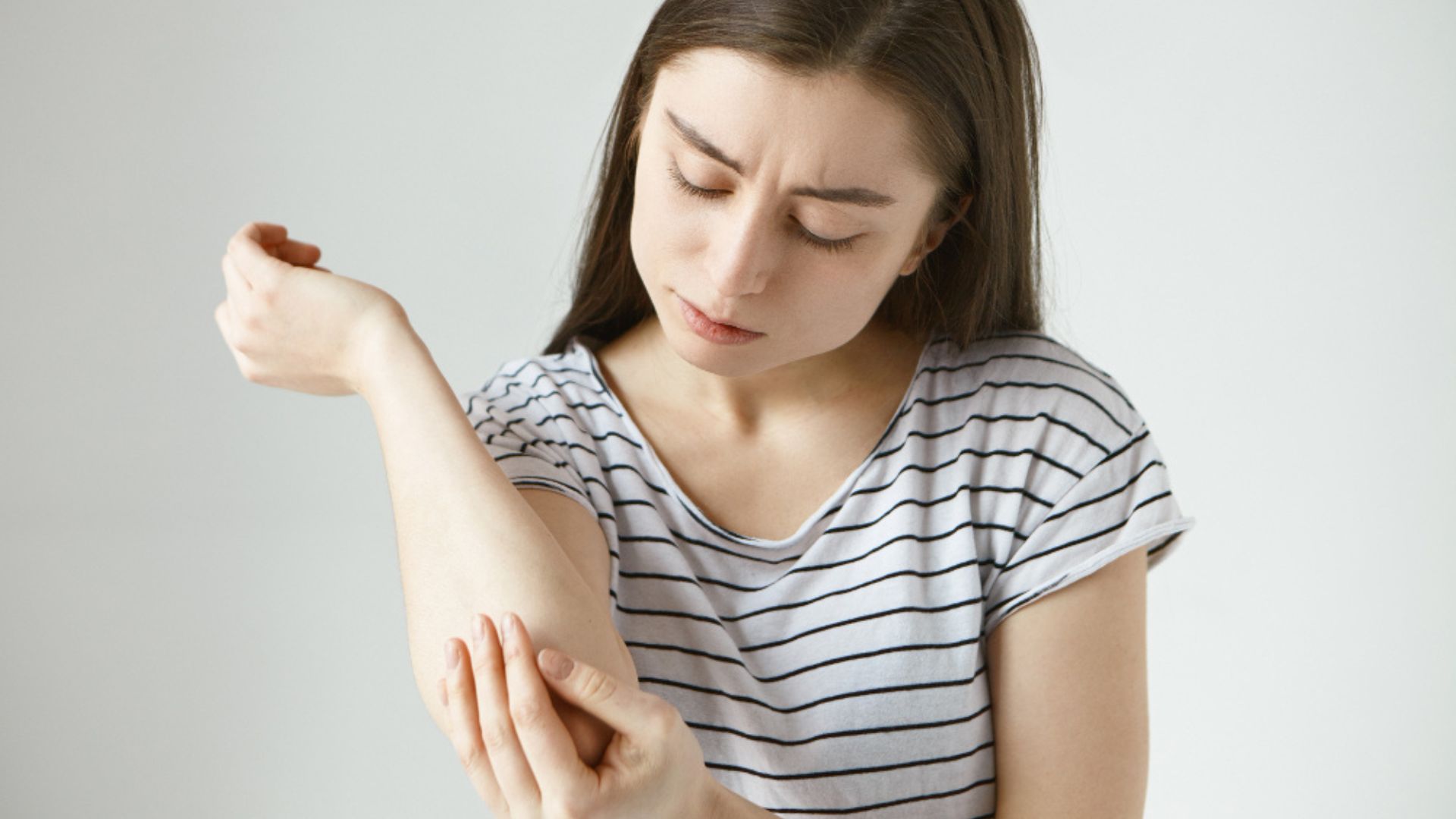

What Types Of Cancer Can Cause Itchy Skin?
Skin itching can be a result of many reasons, including allergies, insect bites and dry skin. The itch is called pruritus and will usually go away once you treat the cause of it. But, sometimes itch can be chronic, meaning it lasts six weeks or longer, known as chronic pruritus.
In rare cases, chronic pruritus can signal cancer. Here, we will see the types of cancers that may cause itchy skin. You can also learn what an itch feels like and when you must seek expert advice.
How to Describe an Itch That Indicates Cancer?
Although there are no specific characteristics to look for, an itch can be:
- Localised or generalised. Meaning one area of the body or affecting the entire body.
- Constant or intermittent
- Mild to severe
Itch can be an associated symptom of cancer. That means it is often an additional symptom of the cancer itself.
What Types of Cancer Cause Itchy Skin?
| Type of Cancer | Explaination |
| Lymphoma | Itchy skin can be a symptom of lymphoma. Hodgkin lymphoma and cutaneous T-cell lymphoma (CTCL) can cause itch, often due to the immune system releasing chemicals called cytokines that irritate nerves. It can also manifest as a rash or scaly patches in the case of CTCL. If you have persistent, unexplained itchiness, especially along with other symptoms like swollen lymph nodes, fevers, night sweats, or unexplained weight loss, you should seek advice from a healthcare professional. Other lymphoma symptoms can be fevers, heavy night sweats, shortness of breath and persistent fatigue. |
| Leukemia | Itchy skin can be a symptom of leukaemia, though it’s not a reliable indicator on its own and other causes of itching are more common. Leukaemia cells infiltrating the skin or inflammatory responses from leukaemia-related cytokines can cause persistent itchiness, potentially accompanied by other symptoms like unexplained rashes, easy bruising (petechiae), or specific skin lesions. If you experience persistent itching along with other worrisome symptoms, it’s crucial to see a dermatologist to determine the cause and get proper treatment. |
| Liver Cancer | Itching can also be a result of liver cancer, often due to a buildup of bile salts in the skin from jaundice, a condition that gives skin a yellowish hue and causes itching. The condition can be generalised and localised. It is often linked to elevated bilirubin levels and other toxins in the bloodstream. It can be mild to severe and may significantly affect the quality of life, leading to discomfort and sleep disturbances. The cancer can trigger the body’s immune system to release chemicals called cytokines, which can cause generalised inflammation and itching. |
| Melanoma | Itchy skin can be a symptom of melanoma, though it is less common. Changes like irregular shape, colour changes, or a new or changing mole are the main symptoms of melanoma. If you notice a new mole or a significant change in an existing mole, particularly if it itches, bleeds, or has irregular borders or colour, you should see a healthcare professional for evaluation. Regularly examining your skin for the ABCDEs of melanoma can help you spot potential warning signs early. |
Basal cell carcinoma, squamous cell carcinoma, bile duct cancer, pancreatic cancer, metastatic stomach cancer and non-small cell lung cancer can also lead to itching as a sign. It is better to get checked by a specialist. It is essential to get the Skin cancer surgery as soon as one can if skin cancer is detected to avoid serious complications.
FAQs: Cancers and Symptoms
Q1. When are signs and symptoms visible in cancers?
Signs and symptoms of cancer can appear at various stages of the disease, and some cancers don’t show signs or symptoms in their early stages at all. Symptoms vary depending on the cancer’s location, but common signs include unexplained weight loss, persistent lumps or thickening, skin changes, a long-lasting cough, changes in bowel or bladder habits, and unusual bleeding.
Q2. Which skin cancer can cause itchiness as a symptom?
Localised itching can be caused by basal cell carcinoma and squamous cell carcinoma.
Q3. How frequently do people get skin checked by professionals?
At least once a year, if you are at high risk for skin cancer, and at least once a year for a general skin check if you are not at high risk.
Q4. Which cancer causes itchiness?
Lymphoma, leukaemia, liver cancer, pancreatic cancer, and skin cancer, as well as other less common types like Hodgkin lymphoma.
Final Thoughts
At SCCQ, healthcare professionals are here to help determine the right type of treatment for you. Whether you are confused about getting the appointment, consultation or the treatment, they can help you. From diagnosis to treatment, the specialist ensures you are getting the right and best care.
Itchiness, unusual growths, and new or changing moles are signs of skin cancer, so one must always stay in touch with skin specialists to get expert advice on time.

